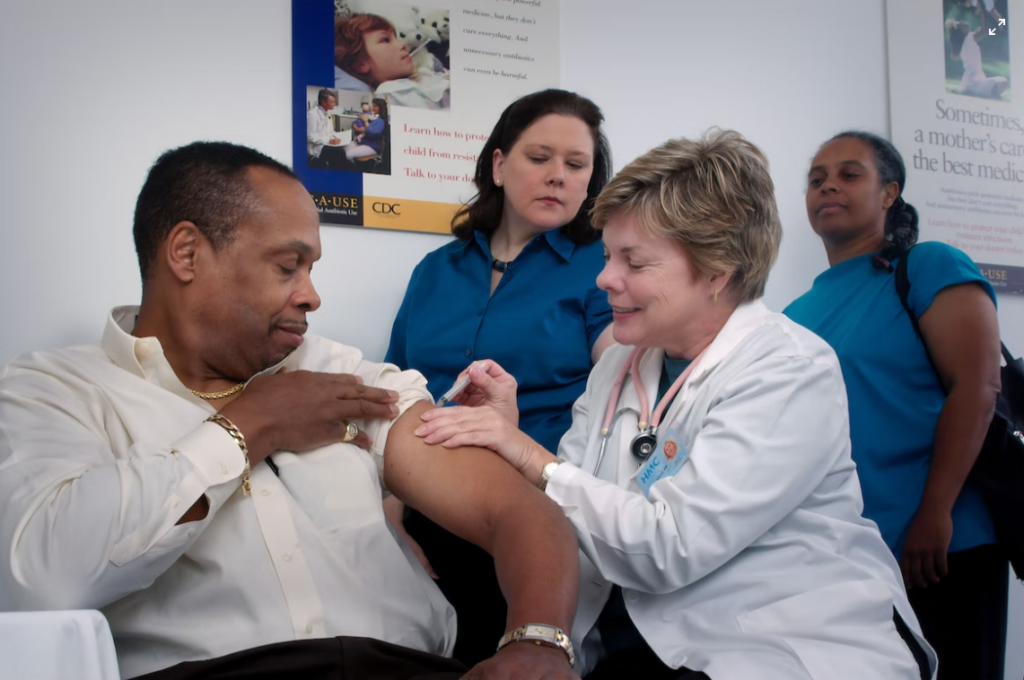Mental Health For Teenagers
Learn about mental health for teenagers to encourage teenagers to open up about their feelings and cope with stressful situations.

Selfpause Affirmation App
Download the app to get 1,000’s of affirmation meditations and everything you need to write, record and listen to your own.
Managing stress is one of the most common concerns for teenagers, and a parent can take steps to help their child deal with it. A positive and supportive environment can encourage teenagers to open up about their feelings and cope with stressful situations. A parent can also call a helpline like Lifeline, Beyond Blue, or Kids Help Line. In addition, parents should seek professional help if they suspect their teen is suffering from a mental health problem. Parents should also take a mental health first aid course to learn more about mental health issues.
Mood disorders

If your child is suffering from a mood disorder, early detection can help alleviate symptoms and support normal growth and development. You can also partner with your teen’s healthcare provider and school to come up with a treatment plan. If your teen is not able to attend school due to a mood disorder, you should speak with a mental health professional to learn about the resources available in your area. Mood disorders in adolescents are often treated through cognitive behavioral therapy, which teaches teenagers to recognize and change negative thought patterns. Some teens may also require antidepressant medications.
Mood disorders affect teens in many ways, with some experiencing intense feelings in more than one area. For example, your teen may be exhibiting multiple symptoms of depression, including suicidal thoughts. If you notice that your teen is feeling depressed or has thought about suicide, you should contact a healthcare provider as soon as possible. You can also learn more about common mood disorders at the Massachusetts General Hospital School Psychiatry Program.
Mood disorders in teenagers can be caused by psychological pain or trauma. Even if your child has no known risk factors, a traumatic event can cause depression. If your teen suffers from a mood disorder, they may seek treatment from a psychologist, counselor, or psychiatrist. When you learn more about your teen’s symptoms, you will be better able to support them and help them become healthier.
Depression in teenagers can affect kids of any gender, but it is more common in teenage girls. Experts don’t know why, but they believe that girls have a higher sensitivity to emotions and may have a higher risk of depression.
Self-esteem issues

Teenagers often struggle with self-esteem issues. During this period of life, teens face many challenges, including peer pressure, developing relationships, and relentless bullying. Thankfully, therapists can help teenagers develop tools for dealing with negative emotions and prevent future issues, such as anxiety and depression.
Teens with low self-esteem often avoid situations that might expose them to ridicule or failure. As a result, they may lack the confidence to take on more difficult school and extra-curricular activities. In addition, this low self-esteem can negatively impact a teenager’s social life, making it difficult to make new friends.
Teenagers with low self-esteem may also engage in risky behaviors, such as drug use or promiscuity. There are many causes of low self-esteem, including early attachment difficulties, a traumatic experience, or a stressful environment. The child’s self-esteem is shaped throughout his or her lifetime, and can be affected by any number of events.
Low self-esteem can negatively affect a teen’s self-esteem, causing them to make poor decisions, be uninterested in academics, or even engage in unhealthy relationships. Moreover, it may even affect the child’s relationships and cause them to suffer from anxiety and depression. It is important for parents to understand these issues so that they can help their teen develop a healthy self-esteem.
Studies have shown that low self-esteem can lead to depression, suicidal ideation, and anxiety. This finding has important implications for secondary school students. Screening for low self-esteem in secondary school can help identify students who are at risk.
Managing stress

Managing stress for mental health for teenagers is important for a variety of reasons. Stress is a natural, physiological, and emotional response to the changes that occur during the teenage years. Parents can play an important role in helping their teenagers manage stress and stay mentally healthy by spending quality time with them and getting involved in their activities. They can listen to their teenager’s concerns and encourage them with positive ideas. However, parents should not offer advice or suggestions without their teenager’s consent. However, open communication can encourage your teen to talk to you about the things that are causing stress in his or her life.
As a parent, you can help your adolescent manage stress by helping them develop coping strategies. You can also help them develop better time management skills and help them set up good study habits. You can also help them with problem-solving by encouraging them to write down emails and role-play problems that they may face. If your child is not able to cope with stress, you can help him or her to seek professional help. Getting counseling early will help your adolescent find ways to manage stress, and it will help you prevent further problems.
While stress is natural and healthy, too much of it can interfere with a child’s ability to enjoy life and grow. Fortunately, there are many methods to help teenagers manage stress so they can enjoy life to the fullest. Managing stress for mental health for teenagers can help them cope with a range of challenges that can affect their emotional and physical well-being.
One of the primary sources of stress in teenagers is peer relationships. These relationships change rapidly and can affect mood and behavior. At the same time, adolescents are also discovering their sexual and gender identities. They are also confronted by issues such as bullying and immigration, and this can cause them stress and anxiety.
Mindfulness-based interventions

Mindfulness-based interventions are a popular approach to improve mental health in young people. Although the effectiveness of these interventions is promising, the recent literature highlights the need for high-quality RCTs. This meta-analysis aims to assess the current state of the art of mindfulness-based interventions for young people, and also to consider the effects of mindfulness-based interventions as part of a wider, more comprehensive program. In addition, the updated meta-analysis considers the effectiveness of mindfulness-based programmes across a wide range of variables, including selective versus universal interventions, and follow-up studies.
The evidence supporting the benefits of mindfulness-based interventions is rapidly increasing, especially among adolescents. Research has also shown that this approach can improve several health conditions, including anxiety and depression. Furthermore, mindfulness-based interventions have been shown to improve emotion regulation in substance-use disorders, improve the quality of life in patients with chronic pain, and even improve sleep. Additionally, mindfulness interventions can be beneficial for adolescents with ADHD and mental health problems related to performance sports.
In addition, studies have shown that mindfulness interventions improve core cognitive skills, which support academic performance and social functioning. Adolescence is an important developmental stage for the development of self-regulation and executive functioning, two important aspects of mental health. Unfortunately, half of all mental illnesses develop before the age of 14. This is why mindfulness-based interventions are an effective way to improve mental health in teenagers.
While the results of this study show promising results, further studies are necessary to confirm the efficacy of this approach among teenagers and families. Further research needs to be conducted to examine the optimal duration of mindfulness teaching sessions and the best ways to deliver it.
Treatment options

Treatment options for mental health for teenagers include various types of therapy. One of these is cognitive-behavioral therapy (CBT). It teaches the young person how to manage his or her emotions and cope with stressful situations. Another type is family therapy. It helps the family to better understand the youngster’s needs.
Teenagers with mental health issues often struggle with their thoughts, behaviors, and emotions. These teens are often more likely to fail tests or drop out of school. Unfortunately, schools often do not provide adequate resources and accommodations for these students. Additionally, these teens tend to engage in high-risk behavior, which can put their physical health at risk. They may self-harm or use substances. These behaviors may also result in legal and social repercussions. Additionally, they may experience feelings of guilt or shame.
Treatment options for mental health for teenagers can include residential or outpatient treatment. Residential treatment programs are live-in facilities that offer clinical care and a combination of academics and experiential activities. The staff includes psychiatrists, therapists, and other mental health professionals. Some residential treatment programs also offer support groups and community mental health centers.
Treatment options for mental health for teenagers can also include specialized inpatient treatment and intensive outpatient programs. Inpatient treatment involves a comprehensive evaluation by a medical professional, which determines the best treatment path for the child. Some of these programs also offer residential detox, which involves medications to relieve withdrawal symptoms.
Treatment options for mental health for teenagers can also include counseling and therapy. Some community centers offer therapeutic groups for adolescents and help them establish healthy behaviors. In addition, private practitioners can help teens and their families form new connections. Moreover, teen support groups and parent groups offer encouragement and guidance for parents and teenagers.
Our Top FAQ's
Common mental health issues that teenagers face include depression, anxiety, eating disorders, and substance abuse. Other issues that may affect teenagers include attention deficit hyperactivity disorder (ADHD), bipolar disorder, and psychotic disorders such as schizophrenia.
Parents and caregivers can support the mental health of their teenage children by being a good listener, encouraging open communication, showing love and support, and helping teenagers learn how to cope with stress and solve problems. It can also be helpful for parents to educate themselves about mental health and to seek support for themselves if needed.
There are many resources available for teenagers who are struggling with mental health issues. These can include mental health professionals, such as therapists and counselors, as well as support groups, self-help resources, and online resources. Schools and communities may also have resources available, such as school counselors or mental health clinics.
To cope with the stress and challenges of the teenage years in a healthy way, teenagers can try to get enough sleep, eat a healthy diet, exercise regularly, and find healthy ways to cope with stress, such as through relaxation techniques or hobbies. It can also be helpful for teenagers to develop a support system of trusted friends and family members who they can talk to about their feelings.
Schools and communities can promote mental health and prevent mental health problems among teenagers by providing education and resources on mental health, creating supportive environments, and offering mental health services. It can also be helpful to have policies in place to address bullying and other behaviors that can have a negative impact on mental health.
